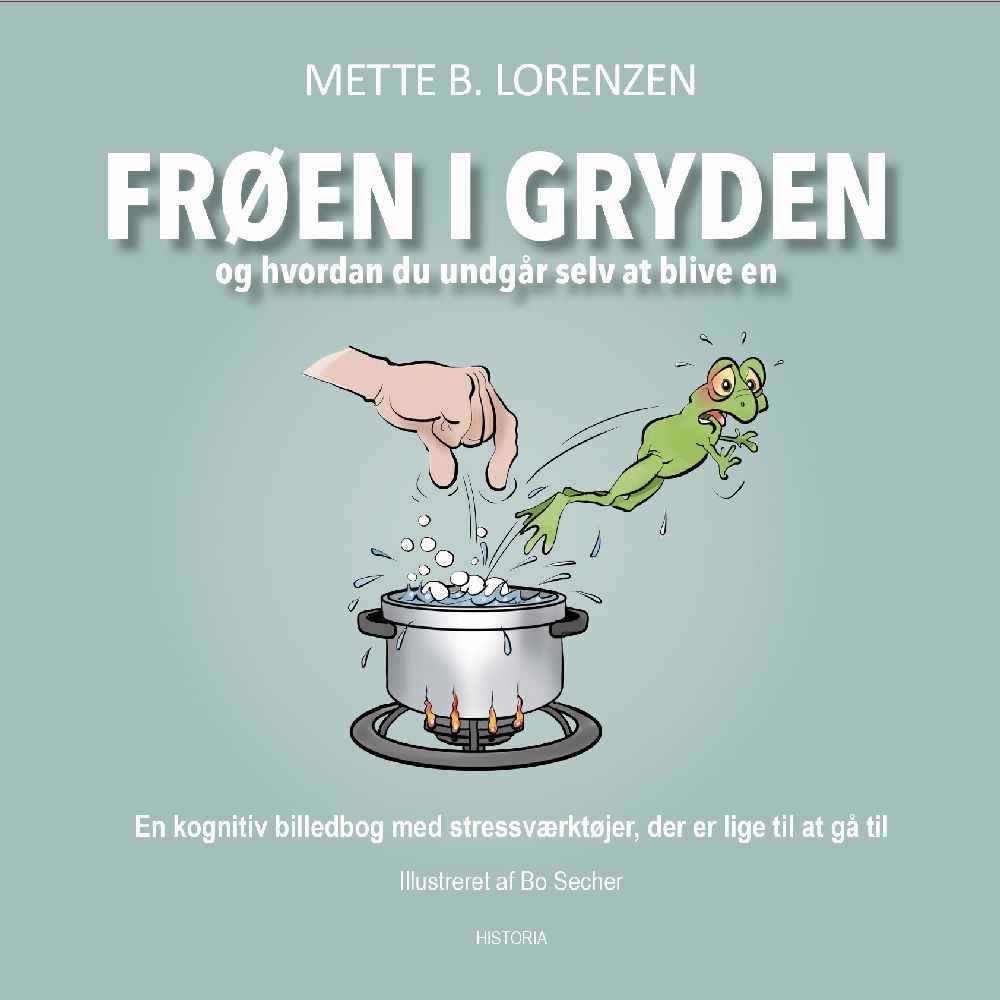FROGS AND STRESS

Mette B. Lorenzen: The Frog in the Pot and How to Avoid Becoming One Yourself. A cognitive picture book with stress management tools that are easy to apply. Forlaget Historia 2020. 115 pages, DKK 249.95.
“The author is a trained cognitive coach and cognitive psychotherapist MPF. She holds a diploma in psychology and in education, career, and vocational guidance and is a mindfulness instructor. The book is based on the third wave of cognitive behavioural therapy, which includes Compassion Focused Therapy, Mindfulness, and Acceptance & Commitment Therapy (ACT).
The author’s aim is to share as much knowledge as possible with as many people as possible, which she successfully achieves through the book’s accessible language, humorous, colourful illustrations, and small quotes that make it readable for most. It is clearly and systematically divided into chapters that can be read independently, depending on what is relevant to the reader’s situation.
The reader first gains an understanding of what happens in the body when stress develops. The following chapters cover how stress manifests itself, what happens when you are on sick leave due to stress, returning to work, and how to regain control over your life. Each of these chapters explains in a positive, supportive, and illustrative manner how stress can develop gradually without us noticing. Everyday examples—both from the workplace and private life—are easily recognisable, accompanied by gentle, reflective questions for the reader, along with practical and manageable advice on how to approach daily life differently, either to prevent stress or to recover after a stress-related sick leave.
In the final part of the book, the reader is introduced to the cognitive approach and how our thoughts and worries affect us. Here, too, the book provides concise and highly accessible advice on developing good, preventive habits to manage stress. The author also includes a brief introduction to mindfulness for absolute beginners and concludes with questions designed to help the reader find their own path in life and clarify their personal values.
The author has succeeded in transforming evidence-based theory into easily digestible messages and practical advice. The humorous illustrations and numerous small quotes make the book inviting and its message easier to remember. Several of the quotes stood out to me during my reading, and I have referred back to them as focal points during busy days—they have been a valuable help.
Despite its simplicity, the book is also useful for readers with more in-depth knowledge of stress, cognitive behavioural therapy, mindfulness, and ACT. It can serve as a quick reference or reminder book. In the introduction, the author writes: “Recognition helps reinforce new routines and behaviours—and the more stressed you are, the less you can absorb when reading and learning new information” (p.7). This is precisely why the book is useful both for those well-versed in the subject and for those with less prior knowledge.
“The Frog in the Pot” is a book I will keep at my workplace. In my work with relationships and people in vulnerable situations, it can sometimes be difficult to respect my own boundaries regarding a reasonable workload. Here, the book serves as a reminder that those who help others must first and foremost be able to help themselves. Overall, this is a book with broad appeal, and its accessibility makes it a useful tool in any situation to remind us of what we can do to avoid being slowly boiled like the frog in the pot.
It can be read whether you are experiencing stress, worried that you might be heading in that direction, or simply want to optimise your everyday life. I give the book my warmest recommendation.”
— Lene Tranholm Gram, Psychotherapist MPF